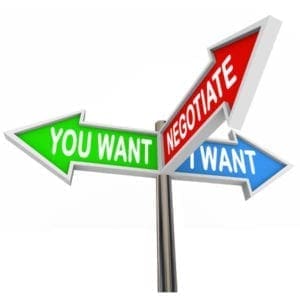 The hospitality industry has been convinced, mostly by media and marketing firms, for some time now that the voice channel is dying. As a result, many hotels have reallocated their energy and budgets away from hiring and training qualified reservation sales agents and put these funds toward online marketing and OTA fees.
The hospitality industry has been convinced, mostly by media and marketing firms, for some time now that the voice channel is dying. As a result, many hotels have reallocated their energy and budgets away from hiring and training qualified reservation sales agents and put these funds toward online marketing and OTA fees.
For many properties, a thorough dive into reservations data shows that the voice channel drives 75-80% of a property’s revenue—especially in the case of independent as well as four and five-star properties. While it may seem counterintuitive, the rapid rise of mobile in travel planning has only increased the potential for voice channel conversions, with click-to-call capabilities driving voice bookings. However, without rebuilding the emphasis on reservation sales staff and their training, hotels aren’t reaching the revenue potential they could be by properly utilizing the voice channel. Embracing the 7 non-negotiables is an essential part of reviving hotel sales.
What are the 7 non-negotiables?
The 7 non-negotiables should be used as the framework for training reservation sales agents. They may at first seem like a checklist of talking points, but they are far more than that. The agent’s ability to successfully navigate non-negotiables requires a combination of spirited and confident personality, commitment to the product, and a desire to make the sale. When each of the 7 non-negotiables is covered by a person with these qualities—and valuable incentives—we’ve seen the call conversion rate increases as much as 40-50%.
1). Use the proper greeting. Use the property’s full name, say your own name, and ask for the guest’s name
2). Create a dialogue. Use open-ended qualifying questions to understand the caller’s requests. Leverage that information to build rapport and sell your property’s experience. Have a conversation. For example, is the caller booking for an anniversary? If so, highlight romantic dining options or packages for couples. If the guest is booking a family vacation, emphasize kid-friendly amenities and activities.
3). Personalize the conversation. Use the caller’s name. Speak to what you’ve discovered—either through integrated CRM information about their previous guest experiences or through your current phone call—about what’s important to the guest. Share a bit of yourself by giving them a local viewpoint. For instance, have you visited the museum featured in the package the guest is booking?
4). Convey confidence and pride. Letting callers know why your property meets their needs shows your investment in the hotel and in their experience. That said, offer the value of the product before stating the price.
5). Be professional and courteous. Speak in slang-free, full sentences. Use a natural, friendly tone. Avoid dead air and excessive hold time.
6). Ask for the reservation. While this seems obvious, NAVIS data shows that reservation agents skip this step 60% of the time. Asking for the sale, after you’ve earned the right to do so, increases conversion significantly.
7). Thank the caller.
Helping your reservation staff succeed at these 7 quality criteria
Ensuring reservation sales agents are able to meet the 7 non-negotiables is foundational, the groundwork for success. Any tool that enhances a reservation sales agent’s ability to succeed at them will only increase agent conversion. Hotels have seen that by using direct channel technologies, hospitality properties are able to increase from an average of 30% inbound closure rate to as much as 50% (and with outbound technology, up to 70%).
In an ideal world, the CRM is integrated with your property’s call technology. On a basic level, this means the potential for an agent to offer a welcome back message and identify long-term VIP guests with ease. It also may mean reservation sales agents have access to previous call data and can use that information to talk to guests about offerings of particular interest to them (i.e., a note that indicates the guest mentioned golfing the last time she spoke with an agent). The potential to increase the guest’s confidence in the hotel’s ability to provide a unique experience, as well as the opportunity for incremental revenue is exponentially greater when agents have tools at their disposal.
Consider marketing campaign integration, as well. From my perspective, this means tying every marketing campaign to call technology that allows reservation agents to see which campaign a call is driven by and to speak to the details of that marketing message, which are automatically provided on the agent’s screen. This prevents agents from having to ask the guest to describe the details of the campaign or package at any point in the conversation.
How to use the 7 non-negotiables to improve inbound call conversion
The 7 non-negotiables are tied directly to sales agents’ success at converting calls to reservations. At NAVIS, for instance, we have the ability to track the exact close rate, in real time, of every agent and believe that regular reviews of agent conversion rates are fundamental to improving voice channel revenue. The capability to record reservation inquiries along with call-scoring functionality based on the 7 criteria allows managers to review each agent and offer tailored coaching based on areas that may need improving—from greetings to dialogue to asking for the booking. Additionally, high-performing agents may be easily indentified, and especially during need times, calls may be routed to those who are most likely to close the business based on their real-time track record.
At the end of the day, reservation sales agents can offer so much more value than they are usually attributed simply by being considered part of the sales team. Then by being given criteria, they are better able to close the deal, and they have guidelines by which to evaluate their success alongside their managers. While some hotels choose to add on to the 7 non-negotiables, nothing less than the 7 will do when it comes maximizing voice channel revenue.
About the author
 Michelle Marquis joined NAVIS in 2006 after serving as Director of Sales and Marketing at Mount Bachelor Village Resort in Bend, Oregon. As a previous NAVIS “power user”, she successfully utilized The NAVIS Way to help her resort increase their conversion rates and bring in incremental revenue from their existing call volume. Michelle draws on her 20+ years of hospitality sales experience heading up the NAVIS Sales Consultant team. As NAVIS continues to grow at a rapid pace, Michelle also focuses on the company’s strategic expansion and exciting path to international markets. She is a frequent speaker at numerous hospitality events around the U.S., including the Google Travel Conference, HSMAI and Preferred Hotel Group. Michelle has a deep understanding of what it takes to drive revenue in the hospitality industry and is driven to help hotels, resorts and vacation rental companies be more successful.
Michelle Marquis joined NAVIS in 2006 after serving as Director of Sales and Marketing at Mount Bachelor Village Resort in Bend, Oregon. As a previous NAVIS “power user”, she successfully utilized The NAVIS Way to help her resort increase their conversion rates and bring in incremental revenue from their existing call volume. Michelle draws on her 20+ years of hospitality sales experience heading up the NAVIS Sales Consultant team. As NAVIS continues to grow at a rapid pace, Michelle also focuses on the company’s strategic expansion and exciting path to international markets. She is a frequent speaker at numerous hospitality events around the U.S., including the Google Travel Conference, HSMAI and Preferred Hotel Group. Michelle has a deep understanding of what it takes to drive revenue in the hospitality industry and is driven to help hotels, resorts and vacation rental companies be more successful.
For more on call center best practices and results that NAVIS clients have seen using the 7 Non-Negotiables, see this Call Center White Paper.















